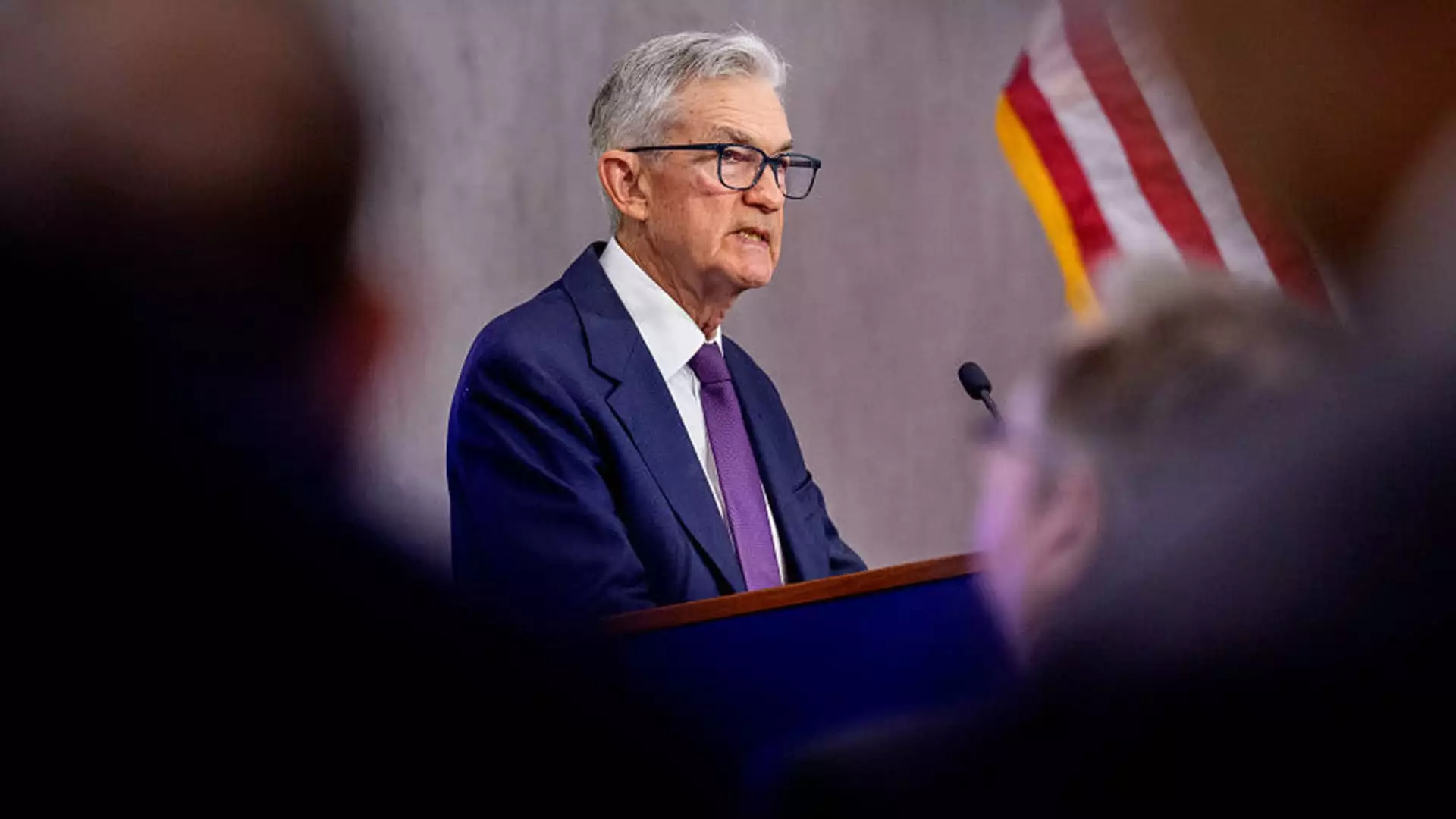In a remarkable show of frustration, former President Donald Trump has once again directed his ire towards Federal Reserve Chairman Jerome Powell, insisting that the Fed must lower interest rates to ignite a stagnating economy. Trump’s demands, articulated through social media, encapsulate a broader and troubling trend of politicizing economic policy. The core of this dilemma lies in the misguided belief that artificially lowering interest rates can magically mend systemic issues within the economy. History has shown us that rather than facilitating a sustainable recovery, such actions can lead to long-term imbalances that place undue pressure on future economic stability.
The recent payroll report from ADP, showing an astonishingly low growth of merely 37,000 jobs in May, serves as both a symptom and an indication of deeper-rooted economic challenges. It starkly contrasts the Dow Jones forecast expecting an increase of 110,000 jobs. Was this dismal reading a result of inadequate government policy, or do we simply have mismatched expectations regarding the labor market’s health? Trump seems to suggest that the answer lies in rapidly slashing interest rates, shifting the blame toward Powell as the “Too Late” chairman. However, this narrative avoids the complexities of the economy, painting a simplistic picture of a straightforward causal relationship between interest rates and job growth.
The European Comparison: A Dangerous Misalignment
Trump further complicates the conversation by highlighting the European Central Bank’s (ECB) recent series of interest rate cuts—an over-simplification that fails to recognize the divergent economic structures and conditions between Europe and the United States. Countries in the eurozone are facing unique pressures. The ECB’s rates have already been strategically lowered in response to their local issues, including easing inflation and tepid growth. To unilaterally apply that framework to the U.S. economy ignores essential contextual factors that delineate these very different arenas. The consequences of blind imitation in economic policy can be detrimental, leading to financial repercussions that favor short-term gain but undermine long-term health.
Moreover, one must question the validity of Trump’s approach. A cut in interest rates designed to spur growth and counter stagnation may inadvertently gamble on future stability. By prioritizing immediate consumption over cautious investment, we risk yielding diminishing returns. As much as Trump’s rhetoric suggests a pragmatic response, it lacks the realism necessary for sound economic stewardship. Caution, rather than impulsive moves dictated by political expediency, should be the mantra for those genuinely interested in fostering sustainable growth within the U.S. economy.
The Fallout of Political Interference
There’s an alarming trend wherein political figures seek to wield influence over institutions charged with economic governance. Trump’s ongoing public tirades against Powell exemplify this unsettling dynamic, where the Fed is treated not as a bastion of independent, objective economic policy-making, but as a pawn in a game of political chess. Powell’s insistence that monetary policy remain divorced from political bias is necessary to safeguard the long-run integrity and effectiveness of the central bank. When policymakers prioritize electoral wins over sound economic fundamentals, the repercussions ripple through the economy, often manifesting as increased volatility and uncertainty.
With potential threats to Powell’s position looming in the backdrop, one wonders how such pressure might distort the decision-making process at the Fed. The implications are frightening: a central bank bending to the whims of politicians undermines the very principles of independence and stability essential for a functional economy. Instead of focusing on objective data and fostering growth from a well-reasoned monetary policy, the Fed might find itself grinding gears under the coercion of political narratives.
The collateral damage of this misguided approach reaches far beyond the walls of the Federal Reserve. Economic decisions have a cascading effect on myriad sectors, influencing everything from job creation to global competitiveness. As Trump appears increasingly committed to his narrative of interest rate cuts, we must remain vigilant against the lure of easy answers that obscure the challenging realities of economic governance. In this multifaceted landscape, an admission of risk and a commitment to sound policy must take precedence over political posturing.


Leave a Reply